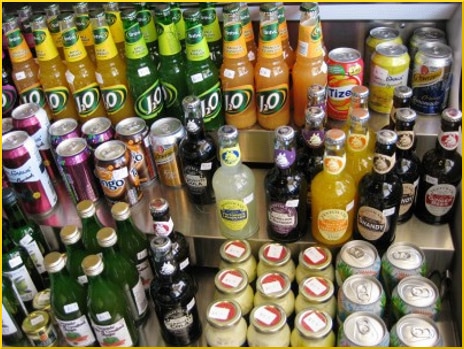
Childhood Obesity News has been discussing the chicanery employed by food and beverage industry executives, spokespeople, lobbyists, public relations departments, advertisers, media liaison specialists, paid consultants, corrupt scientists, bent journalists, and so on. It all adds up to a lot of expensive hot air.
As the United Kingdom’s sugar war heated up, Professor Susan Jebb of Oxford University issued what the Telegraph‘s headline writer called a warning. The taxing of soft drinks “could fail to encourage healthier shopping habits by making sugary drinks more expensive than low-sugar options.”
Well, isn’t that the whole idea? In imitation of the tobacco model, the government imposes a tax that the manufacturer pays no part of, and consequently people buy fewer tobacco products, and smoke less. And those who continue to smoke will contribute, via the tax, to reimburse the government for all the expense of taking care of people who get sick because of smoking.
So, why does that rate a warning? Prof. Jebb is quoted:
It means that retailers could seek to recuperate the cost of the tax by making sugary products more expensive, as obesity campaigners are desperately hoping.
Obviously, the speaker meant “recoup,” not “recuperate.” This brings up another issue. Prof. Jebb speaks of “obesity campaigners” when what she apparently means is “anti-obesity campaigners.” Such carelessness with language and neglect of meaning only worsen the situation.
But here’s the thing. To make sugary drinks more expensive is the whole point. Because then consumers on a budget (and these days, who isn’t?) will (theoretically) opt for the less sugary, and less pricey, drinks. But Prof. Jebb points out that manufacturers could neutralize this objective by raising the price of low-sugar products to match the taxed price of the high-sugar products. In other words, the corporations could sabotage the whole point and purpose of the sugar tax.
Revenue and Customs
Earlier this month, the United Kingdom’s bureaucracy known as HMRC (Her Majesty’s Revenue and Customs) publicized the details of the projected April 2018 sugar levy. That date is another sore point with people who want to see some anti-sugar action within their lifetimes. The corporations whine about being “rushed” into compliance with horrendously unfair laws. But they have seen this coming for years, and had plenty of time to prepare.
As for the costs and the legitimacy of passing them on to consumers, Vice reporter Daisy Meager writes:
The report states that there will be two tax rate bands: one for added sugar drinks with 5 grams of sugar or more per 100 millilitres and a higher levy on drinks with 8 grams of sugar or more. The HMRC paper also said: “The levy will apply to the producers and importers of these types of drinks.” In other words, it’s up to producers whether these costs are passed onto consumers.
Again, there is plenty of opportunity for malarkey regarding the hardship that will fall upon the poor if they are forced by economic necessity to consume less liquid sugar. The Malay Mail Online put it like this:
The industry, led by the British Soft Drinks Association, is lobbying against the bill, saying it would cost jobs and hurt poor people who spend a disproportionate amount of their income on food and drink.
Then the article quotes the director-general of the British Soft Drinks Association, Gavin Partington:
It’s a levy on industry but it will feed through to higher prices on consumers. In the process it will lead to job losses in the industry and the poorest in society will pay higher prices.
Here’s a thought. How about if the industry extracts a bit less profit, and pays out smaller bonuses to top executives, and stops spending so much to advertise its reprehensible products to kids? How about if the industry just leaves prices where they are, pays the tax, and eats the difference?
Your responses and feedback are welcome!
Source: “Sugar tax loophole will still allow cut-price fattening drinks, warns, obesity expert,” Telegraph.co.uk, 09/14/16
Source: “This Is How Much a Can of Coke Could Cost After the Sugar Tax,” VICE.com, 12/07/16
Source: “The Jamie Oliver diet: How the UK celebrity chef took on big sugar,” TheMalayMailOnline,com, 12/06/16
Photo credit: Sheila Scarborough (TheSeafarer) via Visualhunt/CC BY

 FAQs and Media Requests:
FAQs and Media Requests: 











